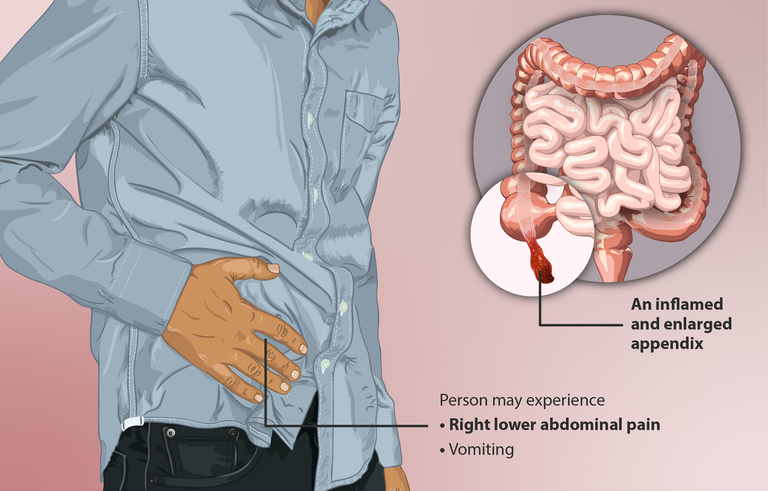The Changing Insight of the Human Appendix, Looking at Keeping it or Cutting It
The appendix has long been viewed as a seemingly superfluous organ in our bodies. In fact, when someone experiences unexplained abdominal pain, surgeons often err on the side of caution and remove the appendix to prevent the potentially life-threatening condition known as appendicitis. So, it begs the question: Is the appendix truly useless, or does it serve a purpose that we're only beginning to understand?
While the appendix has historically been labeled as functionless, a shift is occurring in the scientific and medical communities. Recent discoveries and evidence have prompted a reevaluation of the appendix's role in our bodies. Some researchers are now suggesting that this seemingly enigmatic organ plays a significant part in our immune system, while others have posited more intriguing theories
In the past, it was seen as a vestigial organ with no function but could have served a purpose in our evolutionary ancestors. Some scientist have the opinion that the appendix played a crucial role in aiding the digestion of cellulose in our leaf-noshing ancestors. Charles Darwin hypothesised that we used to have a large ceacum within the large intestine which we used in storing gut bacteria that is helpful in breaking down plant matter but as we began to eat cooked food, the Ceacum started to shrink and part of the ceacum is the appendix.
A lot of people do not even know that have an appendix only until it becomes inflammed and starts to cause problems as a result of blockage and infection. Since scientist regard the appendix as not functional in the body, the best thing to do is to remove the small sized structure via a procedure known as appendicectomy.
However, recent research, led by Professor Smith and her team, has shed new light on the appendix. They meticulously gathered data on the presence or absence of the appendix in the gastrointestinal systems of 533 mammal species, considering various environmental factors. Their investigation delved into the evolution of the appendix, why certain species possess it while others do not, and its potential role.
Their findings challenged previous assumptions. According to their research, the appendix has independently evolved in mammals more than 30 times, persisting once it emerges in a lineage. Their analysis revealed that species housing the appendix displayed a higher concentration of immune or lymphatic tissues, suggesting a potential link with the immune system.
Further research indicated that the appendix functions as a reservoir for beneficial bacteria. The lymphatic tissue within it stimulates the growth of these helpful microorganisms. Microscopic examinations revealed an abundance of immune cells, including T-cells, B-cells, and Natural Killer cells, in the appendix. Intriguingly, studies demonstrated that individuals lacking an appendix were four times more likely to develop a severe Clostridium difficile infection than those with this organ.
Some studies have been able to give reasons to remove the appendix. A study showed that the appendix houses lewy bodies which are abnormal protein deposits found in the brain of patients that suffer from parkinson's disease. The study showed that removing the appendix can reduce a person's risk of parkinson's disease. Well, a good reason to remove it you would say. Other studies have shown inconsistent evidence that removing the appendix can protect against ulcerative colitis.
We might need a lot of research and study on the appendix to be able to identify its importance but then when you are with a physician what they will be considering if there is a reason to remove the appendix would be the risk and benefit of removing the appendix. In cases of appendicitis, science proves that if it stays, it can be fatal.
Read More
https://www.ncbi.nlm.nih.gov/pmc/articles/PMC6319259
https://www.nejm.org/doi/full/10.1056/nejm200103153441104
https://www.ncbi.nlm.nih.gov/pmc/articles/PMC1773481/
https://www.ncbi.nlm.nih.gov/pmc/articles/PMC1773455/
https://www.ncbi.nlm.nih.gov/pmc/articles/PMC5011360/
https://www.sciencedaily.com/releases
https://thedo.osteopathic.org/2017/01
https://www.eurekalert.org/news-releases/540024
https://www.ncbi.nlm.nih.gov/pmc/articles/PMC6839473/
https://www.nih.gov/news-events


I learnt it always leads to death if not quickly treated?
Thanks for your contribution to the STEMsocial community. Feel free to join us on discord to get to know the rest of us!
Please consider delegating to the @stemsocial account (85% of the curation rewards are returned).
Thanks for including @stemsocial as a beneficiary, which gives you stronger support.